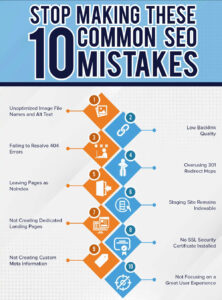Understanding the Digital Gatekeepers of the Web
Search engines are the backbone of the internet. They help us find information, solve problems, and make decisions with just a few clicks. Whether you’re looking for a restaurant nearby, researching for an academic paper, or shopping online, search engines streamline the process by presenting you with the most relevant information. But have you ever wondered how search engines work? Let’s dive deep into their functionality and why they are so vital in our digital world.
What Are Search Engines?
A search engine is a software system designed to search, retrieve, and display information from the internet. When you type a query, the search engine scans its database to deliver the most relevant results. The most popular search engines include Google, Bing, Yahoo, and DuckDuckGo, but Google dominates the market, handling over 90% of global search queries.
How Do Search Engines Work?
Search engines operate using three primary functions: crawling, indexing, and ranking.
1. Crawling: Discovering Content
Search engines use automated bots called web crawlers or spiders to explore the internet. These bots follow links from one page to another, discovering new content along the way. Crawling begins with a list of known URLs, which are systematically visited to find fresh content.
Key steps in crawling:
- Finding URLs: Bots identify new websites through sitemaps or backlinks.
- Exploring Content: They navigate through pages and analyze multimedia, such as images, videos, and PDFs.
- Reporting Back: Crawlers send data back to the search engine for further processing.
2. Indexing: Organizing Information
Once a page is crawled, its data is stored in the search engine’s index, a massive database containing billions of web pages. During indexing, search engines analyze the page’s content, keywords, metadata, and structure to understand its context and relevance.
Components analyzed during indexing:
- Keywords: Core terms that define the content.
- Meta Tags: Information in the HTML header, like meta descriptions and title tags.
- Content Quality: Depth, originality, and relevance of the information.
- Multimedia: Images and videos are tagged and indexed based on associated metadata.
3. Ranking: Delivering Results
When a user submits a query, the search engine sorts through its index and ranks pages based on relevance and authority. The goal is to provide the most accurate and helpful answers.
Factors affecting rankings:
- Keyword Relevance: Does the content match the search intent?
- Authority: Does the website have strong backlinks and credibility?
- User Experience: Is the site mobile-friendly, fast, and easy to navigate?
- Content Freshness: How recent is the information?
Why Are Search Engines Important?
Search engines play a crucial role in connecting users with information. They simplify online exploration and ensure that we can access relevant content efficiently. Their importance extends across various domains:
- Education: Students use search engines for research and academic learning.
- Healthcare: Individuals search for medical advice and find local clinics.
- E-commerce: Buyers discover products and compare prices online.
- Entertainment: Users stream music, watch videos, and play games via search engines.
Key Algorithms Powering Search Engines
1. PageRank (Google)
Developed by Larry Page and Sergey Brin, this algorithm ranks pages based on their link authority. Pages with more backlinks from trusted sources rank higher.
2. RankBrain (Google)
This AI-based system understands user intent by analyzing past behavior and complex queries. It plays a significant role in interpreting long-tail keywords.
3. Bing’s Intelligent Search
Bing uses AI to display aggregated results, including knowledge panels and multimedia, for an enriched user experience.
Types of Search Engine Results
Search engines display several types of results to cater to diverse user needs:
- Organic Results: Unpaid, algorithm-driven results based on relevance.
- Paid Results: Ads displayed at the top or side, marked as sponsored.
- Rich Snippets: Enhanced results with ratings, FAQs, or images.
- Knowledge Panels: Direct answers and factual information.
- Local Listings: Maps and nearby businesses for location-based searches.
Challenges Faced by Search Engines
1. Managing Spam
Search engines constantly battle spammy content designed to manipulate rankings.
2. Privacy Concerns
Balancing user personalization with data privacy remains a significant issue.
3. Ad-Driven Models
Over-reliance on ads may impact the quality of organic search results.
The Role of SEO in Search Engines
Search engine optimization (SEO) is the practice of enhancing a website to improve its visibility on search engines. Effective SEO ensures that a site appears prominently in organic search results.
Core components of SEO:
- On-Page SEO: Optimizing keywords, meta tags, and content.
- Off-Page SEO: Building backlinks and improving domain authority.
- Technical SEO: Enhancing site speed, mobile-friendliness, and indexing.
Search Engine Trends in 2025
- Voice Search
With devices like Alexa and Google Home, voice search is reshaping how queries are structured. - AI Integration
Search engines increasingly use AI to provide hyper-personalized experiences. - Mobile-First Indexing
Google now prioritizes mobile-friendly websites in its rankings.
How Do Search Engines Impact Businesses?
Search engines are vital tools for businesses to reach their audience. By appearing on the first page, brands can:
- Increase Traffic: High rankings drive more visitors.
- Boost Credibility: Users trust businesses that appear in top results.
- Enhance Conversions: Targeted visibility leads to better customer engagement.
Common FAQs
What’s the difference between organic and paid results?
How do search engines handle multilingual websites?
Can search engines index private or secure pages?
Conclusion
Search engines are indispensable tools that shape our online experiences. By understanding their mechanisms, you can optimize your content and gain better visibility. Whether you’re a business owner or an individual seeking information, search engines bridge the gap between your needs and the digital world.
At Entrepot Media, we specialize in helping businesses enhance their online presence with tailored SEO strategies. Contact us today to unlock your potential and dominate search engine rankings.





